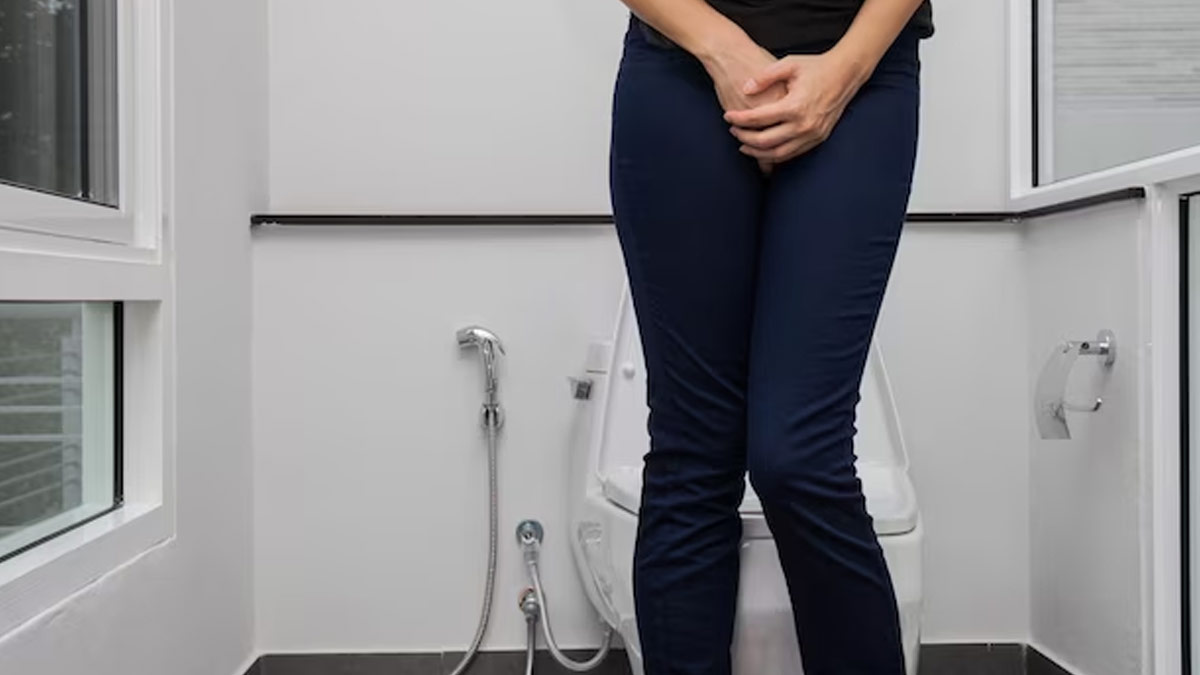
Urinary incontinence (UI), a condition where individuals experience involuntary urine leakage, can affect the daily lives of individuals. One of the major contributing factors to UI is obesity. Weight loss can be an effective treatment for UI, especially for overweight or obese individuals. Reducing weight can lessen pressure on the bladder and pelvic floor, leading to improved bladder control. We spoke to our expert Dr Arif Akhtar, Senior Consultant Urologist, Marengo Asia Hospital, Gurugram, who explained the connection between UI and obesity and how weight loss helps in managing it.
Table of Content:-

According to Frontiers in Endocrinology, UI is characterised by the unintentional release of urine from the urethra, beyond the control of the individual. Despite its prevalence, it is frequently overlooked, with estimated occurrence rates varying from 10-40%. UI manifests in three primary forms: Stress Urinary Incontinence (SUI), Urgency Urinary Incontinence (UUI), and Mixed Urinary Incontinence (MUI).
Almost 50% of middle-aged and older women suffer from UI, including 18.3 million women in the US as of right now. Age, childbearing, diabetes, and a higher Body Mass Index (BMI) are risk factors for urine incontinence, as stated in the Open Access Journal of Urology.
Causes Of Urinary Incontinence

Dr Akhtar listed the causes of urinary incontinence as follows:
- Weakened pelvic floor muscles
- Nerve damage
- Hormonal changes
- Obesity
Connection Between Obesity and Urinary Incontinence
“The risk of UI increases with obesity. This is because excess weight puts additional pressure on the bladder and surrounding muscles, leading to their weakening and ultimately resulting in urine leakage”, added Dr Akhtar. Moreover, obesity is often associated with other conditions, such as diabetes and cardiovascular diseases, which can further exacerbate UI.
According to a review by the Journal of Urology, the risk of incontinence increases by a startling 20–70% with every 5-unit increase in BMI.
According to a study by Neurology and Urodynamics, MUI, which affects 82% of men and 77% of women, showed the strongest correlation between UI and obesity.
Also Read: Urinary Incontinence Can Be Linked To Menopause: Here's How You Can Manage It
How Does Weight Loss Help Manage Urinary Incontinence

Weight loss plays a crucial role in managing UI by addressing the underlying cause i.e. excess weight. “When individuals lose weight, the pressure on the bladder and pelvic floor muscles decreases, relieving strain and allowing these muscles to function more effectively. Also, weight loss can improve overall health, reducing the risk of associated conditions that contribute to UI”, highlighted Dr Akhtar.
According to HHS Public Access, a weight loss of 5-10% is a good starting point for treating incontinence because it works similarly well to other nonsurgical treatments.
Furthermore, lifestyle changes accompanying weight loss, such as adopting a healthy diet and engaging in regular exercise, can directly benefit bladder control. Physical activity strengthens pelvic floor muscles and promotes bladder function, while a balanced diet can prevent constipation and reduce urinary urgency.
According to a three-month trial by the New England Journal of Medicine, women who were overweight or obese and were randomly assigned to a liquid diet low in calories experienced a considerably higher weekly reduction in the frequency of episodes of urine incontinence than those who did not receive any intervention.
Bottomline
Dr Akhtar concluded, “Weight loss offers a multifaceted approach to treating UI by alleviating pressure on the bladder and pelvic floor muscles, improving overall health, and promoting lifestyle modifications conducive to better bladder control.”
[Disclaimer: This article contains information provided by an expert and is for informational purposes only. Hence, we advise you to consult your expert if you face any health issues to get the necessary treatment.]
Also watch this video
How we keep this article up to date:
We work with experts and keep a close eye on the latest in health and wellness. Whenever there is a new research or helpful information, we update our articles with accurate and useful advice.
Current Version
